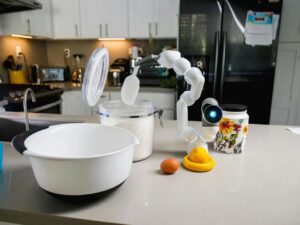The Future of Home Automation: Exploring the Latest Smart Technologies for Renovation

In recent years, technological advancements have revolutionized the way we interact with our homes. From voice-controlled assistants to automated lighting systems, smart home technologies have transformed ordinary living spaces into intelligent, interconnected environments that enhance convenience, efficiency, and security. As the demand for smart home solutions continues to grow, the future of home automation looks promising, offering homeowners unprecedented control and customization over their living spaces.
One of the most significant developments in home automation is the rise of voice-controlled assistants, such as Amazon Alexa, Google Assistant, and Apple Siri. These intelligent virtual assistants allow users to control various aspects of their homes using simple voice commands. Whether it’s adjusting the thermostat, turning on the lights, or playing music, voice-controlled assistants offer hands-free convenience and accessibility, making everyday tasks more manageable and enjoyable.
In addition to voice-controlled assistants, automated lighting systems have become increasingly popular in modern homes. These systems use sensors and timers to automatically adjust the brightness and color of lights based on factors such as time of day, occupancy, and natural light levels. By optimizing lighting settings, automated lighting systems can enhance comfort, productivity, and energy efficiency while reducing electricity consumption and utility costs.

Another key smart technology that is shaping the future of home automation is the smart thermostat. These innovative devices use advanced sensors and algorithms to learn the homeowner’s preferences and automatically adjust the temperature settings for optimal comfort and energy efficiency. By intelligently managing heating and cooling systems, smart thermostats can help homeowners save money on energy bills while reducing their carbon footprint.
Security is also a top priority for homeowners, and smart home technologies offer a range of solutions to enhance home security and peace of mind. From smart doorbell cameras to motion-activated lights to surveillance cameras, these devices allow homeowners to monitor their property remotely and receive instant alerts about potential security threats. By integrating smart security systems into their renovation projects, homeowners can deter intruders, protect their belongings, and ensure the safety of their loved ones.
As the smart home market continues to evolve, new technologies and innovations are constantly emerging to meet the needs and preferences of homeowners. From smart appliances and entertainment systems to automated blinds and irrigation systems, the possibilities for integrating smart technologies into renovation projects are virtually endless. By staying informed about the latest trends and developments in home automation, homeowners can create intelligent, interconnected living spaces that enhance their quality of life and reflect their unique lifestyle.











